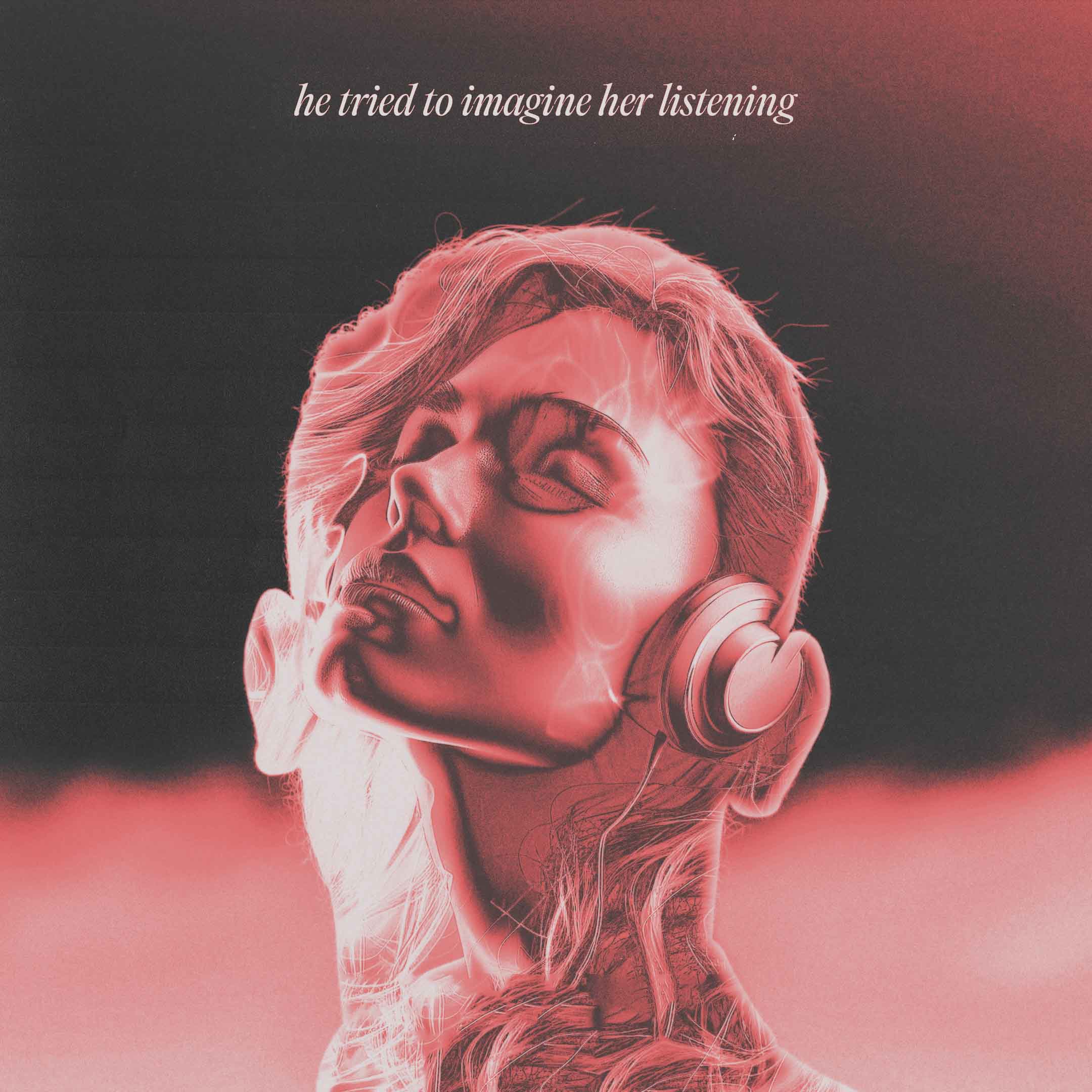
AUX Cord
When two people fall in love, they neither know nor talk about it. They can only reach each other through sonic fiction. Read a flash fiction story for the Sonic Worlding column.
She asked him what songs he’d listened to that summer, after she’d played him hers.
It was the summer of isolation, long before they’d met each other. The answer would have been «Over and Over». But that song meant something to someone else back then. He could only say he’d listened to the soundtrack from an obscure Czech horror film. Like everything he said, this was true, but not complete, and he said it not in hopes of directing her feelings, but concealing his own.
He tried to imagine her listening to «My Life in Art» like she listened to the song the way he listened to it, listening literally, individually to the words – Tell me about your life in art – like it laid her life out in art. He tried to imagine her listening to «Under the Bridge», living it like Anthony Kiedis under a bridge in Los Angeles, like his father in the ‘90s before they’d both been born.
Though they could have meant nothing, he imagined that the songs were songs that meant she’d been alone, that she was saying she’d been alone. Though at the party, whenever he’d tried to sing to her, she’d been busy, singing along with someone else.
He tried to listen to the songs like he’d known her back then. He found that it hurt him, the idea that she had been alone.
He asked a friend of a friend to show him how to see what she was listening to online. She was listening to the song he’d listened to when, at sixteen, he was falling in love for the first time, trying to get out of it. Of course he hadn’t told her that. But he imagined her listening to it the same way, that she was falling in love for the first time.
He was listening to the song that was playing at the party when she was dancing. He was listening to the song that was playing at the party when she looked at him, when she looked at him and said I like this because he isn’t afraid to say what he means. He just laughed and then he went home.
She meant to say: why do you have to act this way? She meant to say: you’re so great like «You’re So Great» and what she meant to say, she imagined, was I love you, just like in the song. The words that came out weren’t her own. They were suddenly and only the words of a song.
She felt then that they interfered with the feeling, made it too apparent; she had to point them somewhere else, at someone else; like I like this because he isn’t afraid to say what he means, which was what she had meant to say about him, or about herself, though it wouldn’t have been true. Then he was gone, the version of him she’d imagined they’d shared: the versions of them that might have tuned in, listening to the same songs, hearing the same things. She didn’t need to say it. She imagined herself like a kind of shell, a sonic transparency, hollowed out and sent back in a set of estranged words – Our love is all we have – her feelings visible, audible, floating there just below the surface frequency.
She imagined he could have stayed, if that was how he really felt. It was a nice thing she’d heard once, and she needed to forget about it.
Though she couldn’t have heard.
He kept on listening to the song all the way home, over and over like «Over and Over», the one that says Our love is all we have, the one that means it.
Playlist
«Over and Over» by Fleetwood Mac
«My Life in Art» by Mojave 3
«Under the Bridge» by RHCP
«You’re So Great» by Blur
«Jesus, Etc.» by Wilco
«Sonic Worlding» is a monthly Norient column. It invites writers and artists from all over the world to to think and speculate with and not only about music. Where most music writing treats music as something that can be categorised and placed in pre-determined boxes (personality cults, end-of-year lists, genres, origins, styles), «Sonic Worlding» is interested in the vast potential of rhythms, ideas, and worlds that are still to be unlocked, attempting to spin new webs of thought spanning the globe. Edited & curated by Norient editor Philipp Rhensius.
Biography
Published on July 25, 2024
Last updated on January 09, 2025
Topics
About the micropolitical qualities of sound as a non-conscious experience of intensity.
Music and art that dealing with the unfinished and undefined.
What is «Treble Culture»? How does what one hears affect what one sees?
Special
Snap
